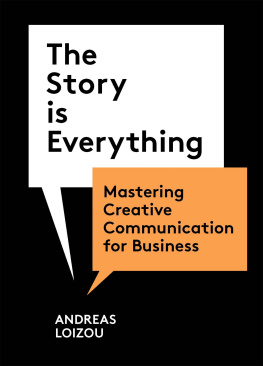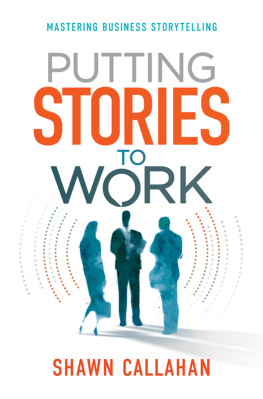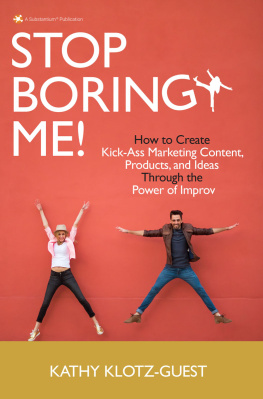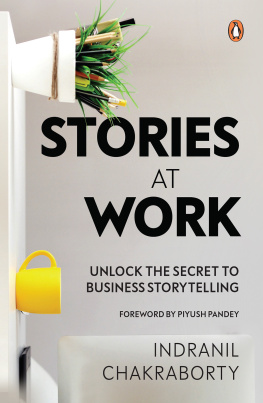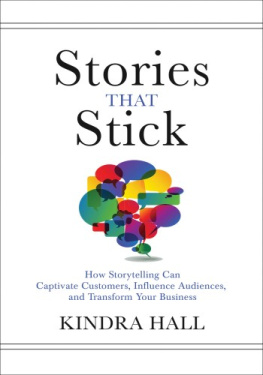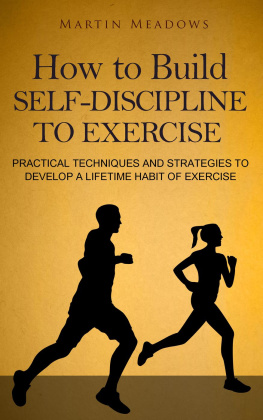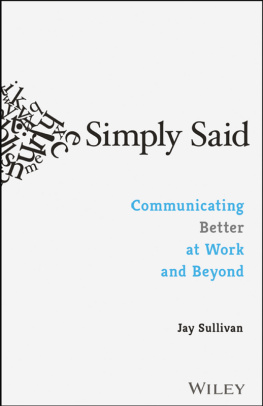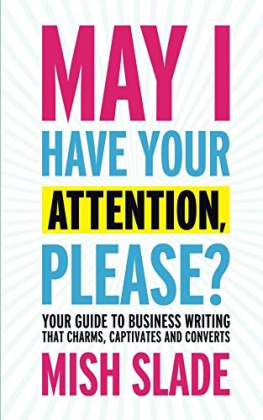CHAPTER 1
Why stories work
Stories change people. Since our cave-dwelling days weve enjoyed sitting around the fire to talk and to listen. Our brains are magically transformed by stories, creating fresh pathways where new tales wipe out old ways of thinking and acting.
Like me, you prefer short intros
We love great stories even more than we hate terrible presentations.
We are all natural-born storytellers. Our listeners admire our honesty when we admit our mistakes, and they cheer as we conquer the obstacles in our path. They identify with us even as we excite and inspire them. Our success as wizened CEO or fresh-faced whizz-kid is their success.
Storytelling creates an emotional connection that mere facts can never attain. You wont make a connection with your ninety-nine bullets about sales targets and employee churn rate. Reciting dull data isnt enough. That guy in row three may look as though hes listening, but real influence comes only when you change whats in his heart.
We all want our tales to be so exciting, instructive or funny that people repeat them. Youve made a great choice, because this book will show you how.
How I wrote this chapter
Introductions are hard to write. Youre never sure if they will be read like prefaces and acknowledgements, theyre generally skipped by readers who are hungry for the good stuff.
So, I decided to start with instead. Novels dont have introductions, and Im always advising my clients to jump right into their tale. Theres no point dilly-dallying when theres a story to be shared.
At this stage youll have liked the name of the book, its cover and its general design, size and feel. It follows that anyone reading this sentence in a bookshop or on Amazon is close to being a buyer. Dont muck it up, Im telling myself, make sure this first chapter is a winner.
The opening chapter sets the tone for the whole book. So Ive made sure that it reflects the content and structure of The Story Is Everything.
I start off with why stories win over audiences.
When I picture you, I see someone who is smart and eager to learn, yet slightly sceptical. Youll be pushed for time, so theres no point in writing 800 pages on literary theory. But you may also be frustrated by the books youve read recently on business storytelling, which pad out a single idea with examples youve seen before. Im fed up of buying books that have barely enough content for a single chapter. I want my readers to know that there are lots of reasons why stories win.
Then I show you how to build a story.
I love structure, especially when its hidden. Did you find mine in the opening section? I know youll skim the first words of each paragraph while youre deciding to buy, so I deliberately front-loaded each sentence with my most important points:
We love stories
Stories change people
We are all natural-born storytellers
Storytelling creates an emotional connection
We all want our tales to be exciting, instructive or funny
I decided against putting a personal story in instead. Competing books tend to have a tale about a massive personal breakthrough, a moment of epiphany when the author realizes her slides arent making an impression or a big contract is lost because she cant connect with the audience. I will show you the impact of storytelling on my life, but Ill reveal it slowly.
By the time youve finished this book, youll be peppering your conversation with heros journey, narrative arc and plot points. But itll take time and work to make this happen. The book demands input from you: commit to the exercises, read with a pen in your hand, write your ideas down. Creation is an active process, so be prepared to roll up your sleeves and get messy.
Next Ill share loads of ideas on how to become a fantastic storyteller.
Voice is key. Throughout The Story Is Everything I use the pronoun we to suggest that my readers and I want the same benefits when we communicate. Were in this together; its only us who can save the world from dull PDF handouts.
But I also talk to you directly, as if we were in a conversation. This sense of dialogue is important to me. Im a friendly adviser, not an aloof lecturer. The occasional rhetorical question increases this sense of face-to-face communication. Thats an effective technique, isnt it?
I want to come across as someone with useful ideas, but not a show-off. Ill present both sides of an argument because I rarely have an axe to grind. But I avoid the language of doubt (I hope to, this might possibly work), because you want to trust me as an authority.
Well finish off with what we can learn from the masters of communication.
My dominant tone is positivity. Psychologists have taught me to emphasize your gains (You will benefit in many ways by improving your storytelling skills) rather than your losses (Dont be dumb and miss out on learning this topic).

Experts on influence and persuasion have warned me away from being too strident. If I spend the whole chapter banging on about how fantastic the book is, you will end up feeling manipulated. Always be closing may be a great mantra for the salesmen in Glengarry Glen Ross, but its the wrong approach for a book that you are choosing to buy and read.
Im convinced that writing success comes from planning. I wrote this opening chapter only once Id finished the rest of the book. Believe me, knowing how your story ends is a huge help at the beginning.
Where to Next?
You can read The Story Is Everything in chapter order, but the book is also designed for you to jump to topics that currently spark your interest. Ill list possible next steps at the end of every chapter, except for this one. Now I want you to do the logical thing and go straight to . After that, youre free to roam.

